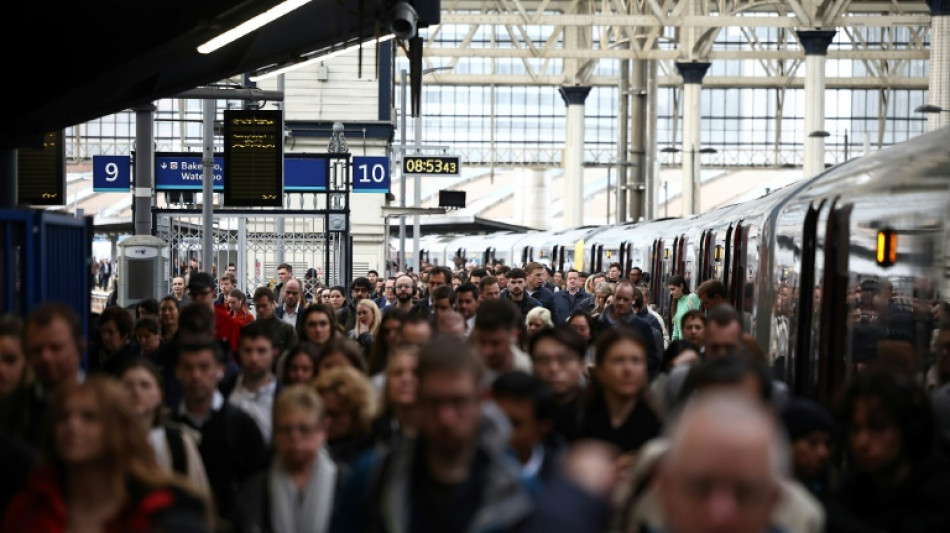
-
 Sean Combs, incarcerated music titan with a shattered reputation
Sean Combs, incarcerated music titan with a shattered reputation
-
Trump says Hamas ready for peace, tells Israel to stop bombing Gaza

-
 Hamas says ready for peace talks, Trump urges Israel to halt bombing
Hamas says ready for peace talks, Trump urges Israel to halt bombing
-
Caipirinhas cancelled: Brazil on alert over deadly drinks
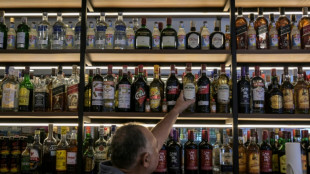
-
 'Nervous, grateful' Ohtani poised for long awaited MLB playoff pitching start
'Nervous, grateful' Ohtani poised for long awaited MLB playoff pitching start
-
Hamas says ready to free hostages, Trump urges Israel to halt bombing

-
 Trump says Hamas ready for peace, tells Israel to stop bombing
Trump says Hamas ready for peace, tells Israel to stop bombing
-
UK synagogue attacker: Briton of Syrian descent
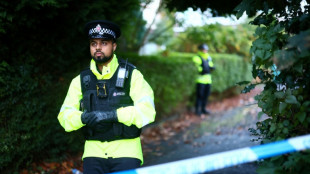
-
 Semenyo double fires Bournemouth up to second in Premier League
Semenyo double fires Bournemouth up to second in Premier League
-
Swiss solar furnaces recycling watchmakers' waste metal

-
 Music mogul Sean 'Diddy' Combs sentenced to more than four years in prison
Music mogul Sean 'Diddy' Combs sentenced to more than four years in prison
-
Taylor Swift breaks streaming record with new 'Showgirl' album

-
 Japan's bruised ruling party to pick yet another leader
Japan's bruised ruling party to pick yet another leader
-
WADA grants Kenya reprieve from doping sanctions, citing 'progress'

-
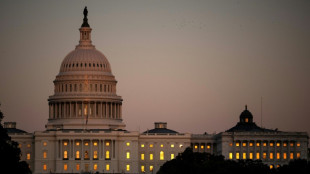 US government shutdown to drag into next week
US government shutdown to drag into next week
-
Madagascar's president denounces 'coup' attempt as protests flare
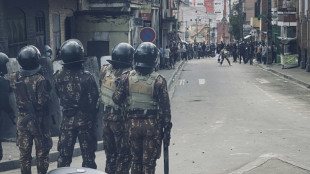
-
 Czechs vote in two-day election with billionaire ex-premier tipped to come first
Czechs vote in two-day election with billionaire ex-premier tipped to come first
-
Ryder Cup winner MacIntyre shares lead at Alfred Dunhill Links

-
 UK police say accidentally shot synagogue attack victim who died
UK police say accidentally shot synagogue attack victim who died
-
Flower replaces Langer as London Spirit coach
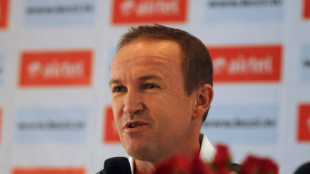
-
 AI in an 'industrial bubble' but will benefit society: Bezos
AI in an 'industrial bubble' but will benefit society: Bezos
-
Cuban opposition leader Ferrer announces exile after prison 'torture'

-
 Mass protests, strikes in Italy for Gaza
Mass protests, strikes in Italy for Gaza
-
Sean 'Diddy' Combs sentencing hearing underway

-
 Taylor Swift strides into 'Showgirl' era with new joyful album
Taylor Swift strides into 'Showgirl' era with new joyful album
-
Yamal to miss Spain's World Cup qualifiers with injury

-
 Hoist the jolly manga: Gen Z protesters rally to One Piece pirate flag
Hoist the jolly manga: Gen Z protesters rally to One Piece pirate flag
-
First wolf-dog hybrid confirmed in Greece

-
 Postecoglou has faith Forest will turn corner after sack chants
Postecoglou has faith Forest will turn corner after sack chants
-
Arsenal must find next level to win trophies: Arteta

-
 Trump gives Hamas until 2200 GMT Sunday to agree to Gaza deal
Trump gives Hamas until 2200 GMT Sunday to agree to Gaza deal
-
UK police 'may' have shot victim killed in synagogue attack

-
 Piastri sets pace in chaotic Singapore second practice
Piastri sets pace in chaotic Singapore second practice
-
Future king Prince William says 'change on agenda'

-
 Man Utd need action, not words: Amorim
Man Utd need action, not words: Amorim
-
Italy-Libya migration pact under scrutiny as bullets fly
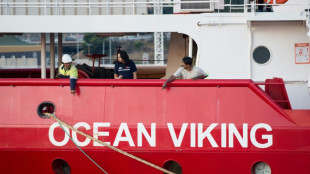
-
 Antony felt 'lack of respect' during Man Utd exit
Antony felt 'lack of respect' during Man Utd exit
-
Horner 'ringing up every team owner' as he plots F1 return

-
 'Suffering' Djokovic battles past Cilic in Shanghai opener
'Suffering' Djokovic battles past Cilic in Shanghai opener
-
'First of its kind' power surge behind Iberia blackout: experts

-
 South Africa's Kolisi wary of Argentina 'fight' in Rugby Championship finale
South Africa's Kolisi wary of Argentina 'fight' in Rugby Championship finale
-
Men killed in UK synagogue attack were known for generosity, jokes

-
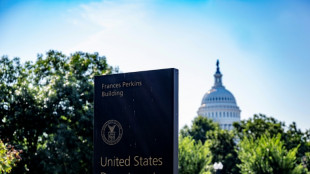 US delays key jobs report due to government shutdown
US delays key jobs report due to government shutdown
-
US government shutdown seen dragging into next week
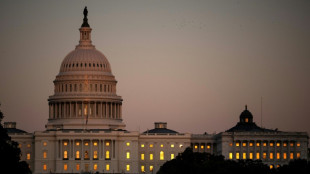
-
 England thrash South Africa by 10 wickets at Women's World Cup
England thrash South Africa by 10 wickets at Women's World Cup
-
Hong Kong to install surveillance cameras with AI facial recognition

-
 Spain coach dismisses spat with Flick over Yamal injury
Spain coach dismisses spat with Flick over Yamal injury
-
Madagascar's president denounces 'coup' attempt in day of fresh protests
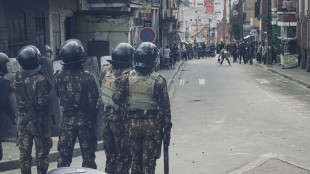
-
 'Suffering' Djokovic fights past Cilic in Shanghai opener
'Suffering' Djokovic fights past Cilic in Shanghai opener
-
Pegula fights past Navarro for Noskova semi-final in Beijing


UK renationalises first train operator under Labour reforms
A private train operator servicing parts of southern England, including London, on Sunday became the first to be returned to public ownership under a government plan to renationalise Britain's much-maligned railways.
All UK rail operators are due to be renationalised within the next two years in a key policy launched by Prime Minister Keir Starmer following his Labour party's return to government last July after 14 years in opposition.
"South Western Railway is now under public ownership. And this is just the start," Starmer said on X, formerly Twitter, naming the service kickstarting his government's plan.
He vowed the renationalisation "will put passengers first", with "better services, with simpler ticketing, on more comfortable trains".
Train passengers in Britain suffer from frequent cancellations, in addition to high ticket prices and regular confusion over which services they can be used on.
The privatisation of rail operations took place in the mid-1990s under the Conservative prime minister of the time, John Major, but the rail network remained public, run by Network Rail.
Four of the 14 operators in England are already run by the state owing to poor performance in recent years, but this was originally meant to be a temporary fix before a return to the private sector.
Labour triumphed over the Conservative party in elections last year, with its manifesto including promises to fix the country's ailing transport services.
Legislation was approved in November to bring rail operators into public ownership when the private companies' contracts expire -- or sooner in the event of poor management –- and be managed by "Great British Railways".
Transport Secretary Heidi Alexander said in a statement that will end "30 years of fragmentation", but warned that "change isn't going to happen overnight".
- 'Public good' -
"We've always been clear that public ownership isn't a silver bullet, but we are really firing this starting gun in that race for a truly 21st-century railway, and that does mean refocusing away from private profit and towards the public good," she added.
In an example of how passengers might not immediately notice much difference, South Western's first service under public ownership on Sunday was set to include a rail replacement bus because of engineering work.
Government figures show that the equivalent of four percent of train services in Britain were cancelled in the year to April 26.
The rate was three percent for South Western.
Rail unions -- which have staged a stream of strikes in recent years over pay and conditions due to a cost-of-living crisis -- welcomed the state takeover.
"We're delighted that Britain's railways are being brought back where they belong -- into the public sector," said Mick Whelan, general secretary of union Aslef.
"Everyone in the rail industry knows that privatisation... didn't, and doesn't, work," he added.
Two operators serving towns and cities in southeastern and eastern England are next to be brought back into public ownership by late 2025.
All the current contracts are set to expire by 2027.
UK media reported that the renationalisation of South Western means a third of journeys are now on publicly owned services.
The government has said renationalisation will save up to £150 million ($200 million) per year because it will no longer have to pay compensation fees to rail operators.
The main rail operators in Scotland and Wales, where transport policy is handled by the devolved administrations in Edinburgh and Cardiff, are also state-owned.
H.Gerber--VB
